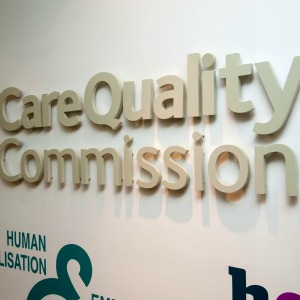The Government has released a new list of 11 ‘fundamental’ standards that will form the basis of the CQC inspection regime to be implemented by the chief inspector for primary care, Professor Steve Field.
These standards include treatment reflecting service users’ needs, users being treated with dignity and respect, treatment provided only with consent, sufficient numbers of qualified staff being employed to meet these standards and employees being of ‘good character’.
The list simplifies the 16 ‘essential’ standards that practices currently have to meet, and redrafts previous proposals by the CQC for a mixture of ‘fundamental’ and ‘expected’ standards, which the DH claimed had confused providers.
Experts said that this change in regulations will help lay the groundwork for the CQC’s new ‘Ofsted-style’ ratings system, which could lead to GP practices having to display certificates in their waiting rooms showing whether they have been deemed ‘outstanding’, ‘good’, ‘requires improvement’ or ‘inadequate’.
The consultation document – titled ‘Introducing fundamental standards’ – comes after the Francis Inquiry into the failings at Mid Staffordshire NHS Foundation Trust recommended the introduction of ‘fundamental standards of safety and quality below which care should never fall’.
A document released by the CQC last summer set out a list of ‘fundamental’ and ‘expected’ standards.
But the DH document said: ‘The current requirements contain a lot of detail, and as a consequence, it is not always clear what the overall intended effect is. It is also not obvious what a breach of the overall requirement would entail.
‘We have tried to rectify this lack of clarity by redrafting the current registration requirements so that they become the new Fundamental Standards – clear outcomes that providers need to meet, and that are widely accepted to be the core of a good service.’
Related stories
Analysis: GPs gearing up for ‘Ofsted-style’ ratings
Survey finds GPs have little confidence in CQC as practice challenges ‘maggots’ claims
As a result, it listed 11 fundamental standards that will be the basis of the inspection regime to be implemented by the chief inspector for primary care, Professor Steve Field.
A Department of Health of spokesperson said: ‘The proposed new fundamental standards are simpler than in the past and will make it possible for CQC to take action quickly when they are not being met. Clearer standards will also make it easier for providers, including GP practices, to know exactly what is expected from them.
‘The CQC’s initial consultation last summer received thousands of responses and there was clear support for this approach. We’re now consulting on the detail of how this should work and would encourage as many people as possible to respond to the consultation online.’
Richard Banyard, director of CQCAssist advisers, said: ‘It is a step on the road for the Government’s plan to introduce by the end of 2014 a ratings system which will mean that by 2016 every practice in England then has an “OFSTED-style” rating.’
Pulse October survey
Take our July 2025 survey to potentially win £1.000 worth of tokens













